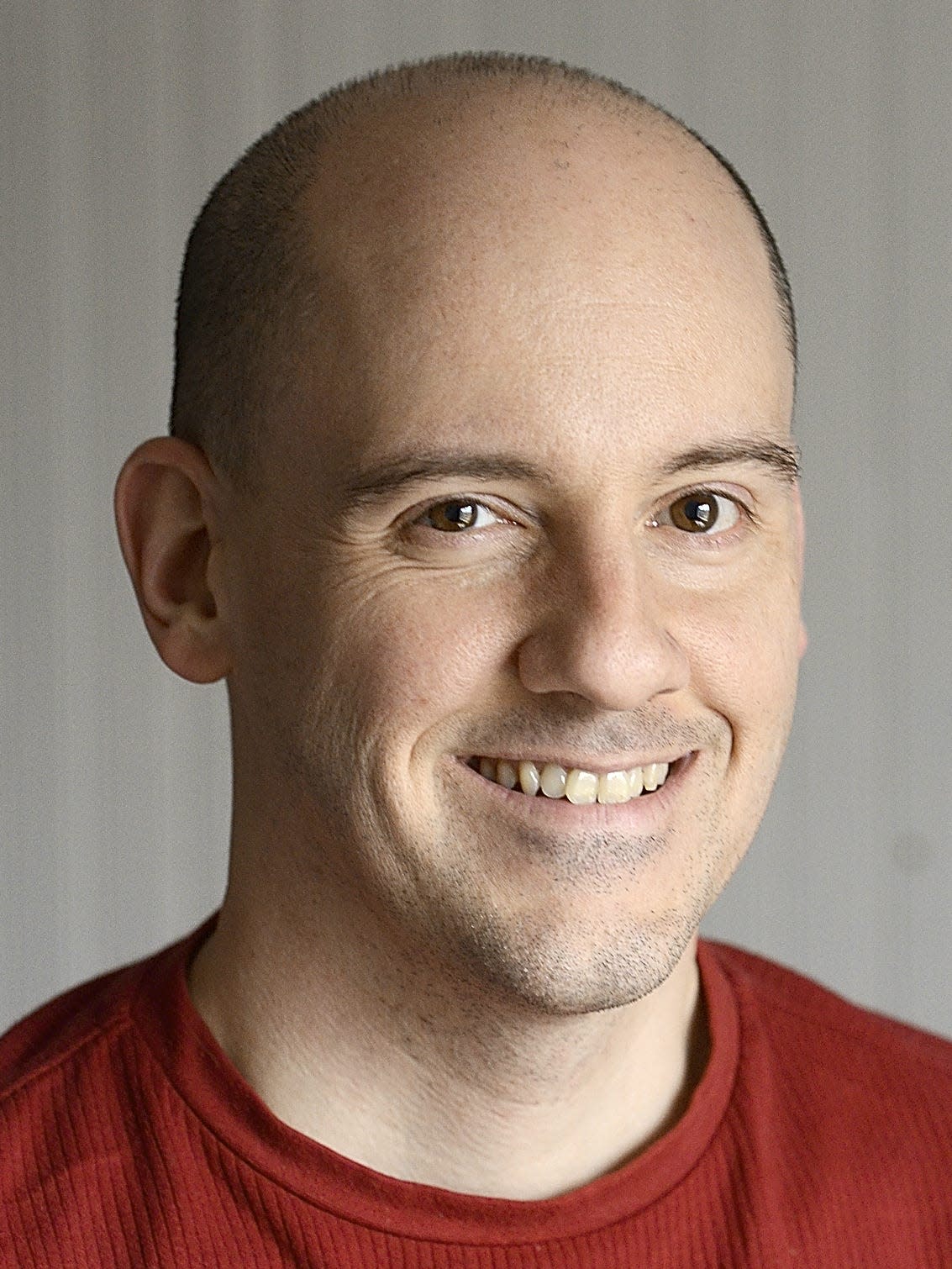Chris Schillig: Wordle bows to the inevitable

Like millions of people, my wife and I have been playing Wordle.
We like the challenge, but also the finiteness and simplicity. One five-letter word, once a day, with six chances to guess. This is the experience in its entirety. If the minimalist movement had an official game, it would be Wordle.
I came late to the fun. This is typical, as I jump on most fads well past their apex. I got my first Rubik’s cube — back in the day, as the younger generation says — just as most of my junior high friends were consigning theirs to the scrapheap.
Wordle isn’t in its death throes yet, but The New York Times purchase of it does portend changes, and not all of them positive. At some point, the new owner will want to make money from what Time magazine described as the paper’s “low seven figures” investment.
Changes so far have been limited to branding the puzzle with The New York Times logo and moving it from the UK site that previously hosted it.
I hope any future modifications aren’t too drastic.
Part of Wordle’s charm is not taking up too much time. Yes, plenty of knock-off sites provide multiple words each day, but I and many other players have avoided these. If The New York Times starts to offer unlimited play to keep people on the site longer — a reasonable goal — it will alter the unique nature of an online pastime that, by design, can be experienced between the main course and dessert or when crawling into bed after a long day.
Contrast this with the near-incessant obligation of Words with Friends, that darling of the 2010s, or the laborious cyber agriculture of FarmVille, where crops withered and died in the time it took to mow the real yard. The tiny commitment to Wordle is one of its biggest assets. Play it daily, walk away for a week, come back when you can — or stay away permanently.
Another part of the attraction is the humble-brag. Users can share their gameplay, minus the actual answer, to social-media platforms. The fewer the guesses, the more likely players are to post the green-and-yellow reminder of that day’s sequence. After all, a Wordle solution in just two turns is a worthy accomplishment, even if it involves more guesswork than skill (says the player who almost always takes four or more turns).
Yet coupled with this ostentatious show of lexical proficiency is the reluctance of players to ruin each day’s word for others. In a world where major plot points are blasted across the Internet within minutes of a movie or TV show’s release, Wordle players keep their word(s) close to their vest. I’ve only had the day’s answer spoiled once, and that was an accident.
And maybe this last advantage is just me, but a key draw of the game was knowing it was a one-person show. Josh Wardle, with a name so similar to his creation, designed it only to please his partner. In an era when so much is made of collaboration and teamwork, when the rugged individualism that has always been a prevailing myth of success – and much less an actuality, but that’s a topic for another day – is rapidly giving way to intense specialization, Wordle is a throwback, essentially a one-man-band. Or, more accurately, an understated solo. Love of the game was Wardle’s priority, and he appeared content to leave it as such, despite the lure of easy money.
I love when creators take principled stands like this, striking mini-blows against rapacious capitalism. Bill Watterson, the architect of the late, lamented “Calvin and Hobbes,” was one such person. He refused offers to merchandise his characters, believing their presence on coffee mugs and T-shirts would destroy their uniqueness on the comics page. (That decal showing Calvin peeing on the Ford or Chevy logo is not officially sanctioned.)
J.D. Salinger, the late, reclusive author of “The Catcher in the Rye,” refused to let Hollywood adapt his seminal coming-of-age novel. In his case, it was because he was displeased with a movie based on one of his earlier stories. He certainly could have pocketed a kingly amount for “Catcher,” but once burned is twice shy.
Wardle was poised to join this august group, but no more. I don’t blame him. Maybe it was easier to take the big payout than institute smaller money-making modifications one at a time.
So it probably won’t be long before we see Wordle caps, Wordle greeting cards and Wordle the Netflix game show. It’s not fair to say the five-letter word of the day is “greed,” but maybe “fated” fits.
Reach Chris at chris.schillig@yahoo.com. On Twitter: @cschillig.
This article originally appeared on The Alliance Review: Chris Schillig: Wordle bows to the inevitable

